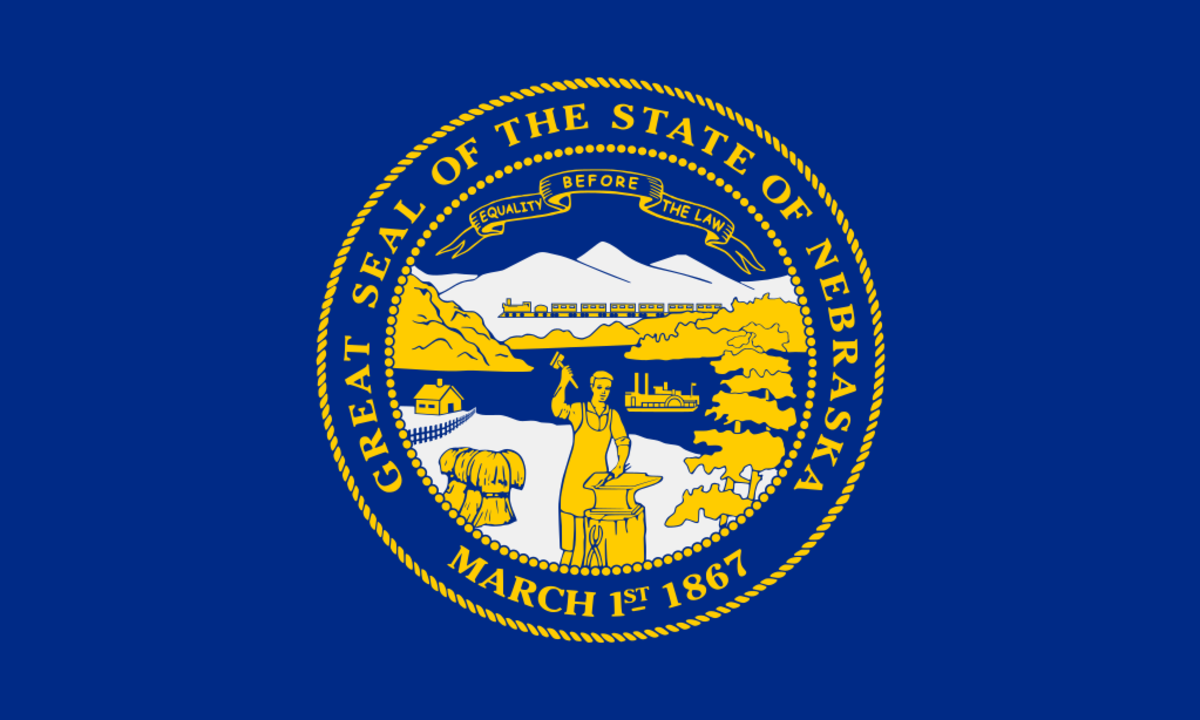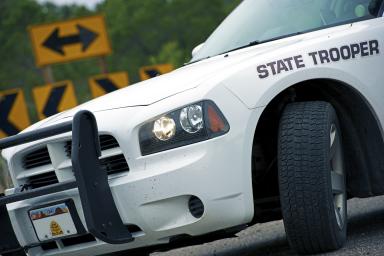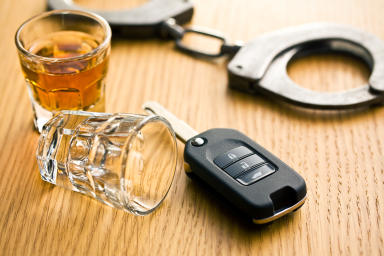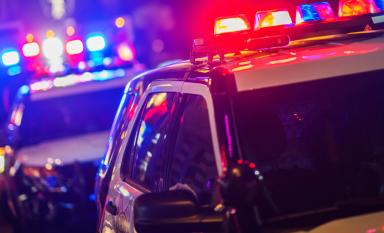Nebraska DUI Laws

Road accidents are one of the long-standing problems the United States is determined to address. Not only are they one of the major causes of death, but they also have a detrimental financial impact on society, costing the country billions of dollars each year. The estimated cost of road accidents in the U.S. in 2019 alone was $340 billion. Due to this, various initiatives and strategies have been implemented to lessen deaths and enhance safety. One major project is Toward Zero Deaths, a national strategy on highway safety focused on achieving zero road deaths through countermeasures and highway safety plans.
Nebraska is one of the states that have adopted this initiative, and it strives to have zero deaths by implementing various projects, such as the Strategic Highway Safety Plan. Despite effective regulations, certain factors that lead to crashes and deaths, like alcohol-impaired driving, remain a challenge to solve completely. According to an annual report of the Nebraska Department of Transportation Highway Safety Office, the number of alcohol-impaired driving fatalities increased by 15.4% in 2020. Of the 233 fatalities in that year, 32.6% were alcohol-related.
If you are harmed in a DUI accident, it is essential to understand the various laws in Nebraska that can assist you in taking action. This article will go over a range of DUI laws in the state, such as the underage-dram shop laws, the Administrative License Revocation Law, and the potential penalties for a conviction. It will also discuss the types of compensation available to plaintiffs in civil cases and the statute of limitations for bringing a claim or lawsuit.
General DUI Laws in Nebraska
In Nebraska, it is illegal to drive a car while intoxicated. A driver can be charged with DUI if they operate or are in actual physical control of a motor vehicle while under the influence of any drug or have a BAC of 0.08% or higher. If you own a commercial driver's license, the BAC limit is stricter at 0.04%.
Aggravated DUI
If your BAC is found to be nearly double the legal limit (0.15%), you may face an aggravated DUI conviction. If your DUI caused "serious bodily injury" to another person, you will also face a harsher punishment. According to Nebraska DUI laws, serious bodily damage is defined as any injury that causes a short or long-term loss or impairment of any body part's function or poses a significant danger of permanent disfigurement or death. Consequently, aggravated DUI carries enhanced penalties, which will be discussed later in this article.
Underage DUI in Nebraska
According to data from the Nebraska Department of Transportation, young drivers aged 19 and under accounted for 5.2% of all licensed drivers in Nebraska in 2020. These included those with a school, learner's, or provisional operator permit. Moreover, teen drivers were involved in 11% of all alcohol-related crashes in the state.
Nebraska has a zero-tolerance law that makes it illegal for anybody under the age of 21 to drive with a BAC of 0.02% or higher. If you are convicted, the court will seize your license for 30 days. After 90 days, the Nebraska Department of Motor Vehicles will remove the violation from your record. However, if you refuse to take a chemical test, your DUI will remain on your record for 120 days.
Nebraska's Implied Consent Law
Nebraska, like other states, has an "implied consent law", which means that it is presumed that every licensed motorist consents to blood, breath, or urine tests if stopped for DUI. If your BAC is found to be higher than the legal limit during the test, you will be arrested.
There are times when a motorist is unable to give consent for testing. For example, an intoxicated driver may have lost consciousness after a collision. This, though, does not imply that the driver declines the test. The exam may be administered as it should be.
While you have the right to decline chemical testing, doing so will result in penalties, such as license suspension, a fine, and jail time. Refusing a preliminary breath test will also result in a class V criminal conviction.
Nebraska's Open Container Law
It is unlawful to have an open alcohol container in the passenger seat of a vehicle while on a highway in Nebraska. Cans, bottles, and other receptacles that hold any amount of alcohol and have a broken seal or partially removed content are considered open containers in this context. It is also illegal to drink alcohol inside public parking areas or on any highway in the state, even if your car is parked. This law is applicable to both drivers and passengers.
There are some exceptions to this rule. It does not apply to passengers (except drivers) in a bus or limousine utilized in a special party service or charter. It also does not apply if the objects are in a vehicle's trunk or behind the back seat (if there is no trunk).
You will be fined $100 if you are convicted for the first time. Subsequent violations can result in a fine of up to $500.
Nebraska’s Administrative License Revocation Law
When you are arrested and charged with DUI, one of the penalties you may receive is license suspension. In Nebraska, you can lose your license without being convicted of DUI. This is because of the Administrative License Revocation Law, which allows for your license to be revoked by law enforcement during a DUI arrest. The revocation is mainly conducted by the DMV. Do take note that ALR is separate from criminal proceedings. It is also not applicable for DUI cases involving drugs, only for DUI-alcohol ones.
There are various periods of revocation available under this law, namely:
180 days - For the first offense following a failure of a chemical test;
One year - For a subsequent offense within a 15-year period following a failure of a chemical test;
One year - For chemical test refusal.
Following the confiscation of your license, you may obtain a 15-day temporary license if you are eligible. You may be qualified for an Ignition Interlock Permit after this license has expired. You can find out if you are eligible online or by contacting the DMV at 402-471-3985.
If you want to contest the revocation, you can request an ALR hearing. You have 10 days to file a petition. You, the police officer who arrested you, and a DMV hearing officer will be present at the hearing. The police officer will explain why they stopped your vehicle. They may also provide a copy of the temporary license or an explanation of why you were regarded to have refused a test, whatever the case may be.
Following the hearing, the hearing officer will offer a recommendation to the director, who will then make the ultimate decision. If the hearing goes in your favor, your license will be included in the ruling (assuming it is in the DMV's custody). Your license will be revoked if you lose. Furthermore, you will not be eligible for an IIP unless it is ordered by the court for the DUI offense.
What Are the Penalties for a DUI in Nebraska?
If you are convicted of DUI in Nebraska, you may face various penalties, such as jail time, fines, and license revocation. Below is a table that details possible penalties depending on the offense:
Enhanced Penalties
If you have a BAC of 0.15 or higher, the penalties may be greater, as listed in the table below:
A DUI case will also be classified as a Class IIIA felony if the defendant has caused serious bodily injury to another person or an unborn child. The defendant is not allowed to drive and will have their license suspended for at least 60 days but not more than 15 years.
Nebraska's Underage Dram Shop Law
Dram shop laws are a type of statute that allows a plaintiff to sue a person or an establishment that distributes alcohol for injuries, death, or other types of damages caused by intoxicated drivers. Nebraska has its own dram shop statute. However, it only applies to situations involving those under the age of 21.
For example, a 16-year-old goes to a pub. The host continues to serve them alcohol even though they are obviously drunk. They then leave the establishment and drive home, but they hit a pedestrian in the process. Depending on the circumstances, the victim may sue the bar for damages in addition to available tort actions.
Plaintiffs can also sue social hosts who serve alcohol to minors and alcohol distributors who supply alcohol to minors in private events like parties or gatherings, according to Nebraska Revised Statute 53-404.
Nebraska's Dram Shop Law Defenses
If plaintiffs have dram shop laws that allow them to sue people or entities who provided alcohol to minors, defendants have liability defenses that apply to this type of charge.
Let's say a host serves alcohol to a patron but is unaware that the person is a minor since they supply fraudulent identification and claim to be of legal drinking age. This is a legal defense that the host can utilize if they get sued.
Furthermore, if the minor is accompanied by a duly authorized law enforcement official and the vendor serves alcohol with this knowledge, the defendant can use this as a legal defense.
How Much Can Someone Sue for a Drunk Driving Injury in Nebraska?
When you are injured by a drunk driver by a DUI in Nebraska, there are two main types of damages to seek: economic and non-economic. Some examples of economic damages are lost wages and medical bills (from surgical procedures, therapies, and check-ups). Meanwhile, pain and suffering and loss of future earning potential are among the potential non-economic damages you may receive. There is no cap on the damages one can recover in a claim.
Another type of damages, called punitive damages, can be awarded to the plaintiff. The purpose of punitive damages is to punish the defendant for their intentional and reckless actions. While they can be given in other states, they are generally not allowed in Nebraska except in certain situations. The Nebraska Supreme Court deems punitive damages as unconstitutional and cannot be recovered.
Nebraska's Modified Comparative Negligence Rule
When it comes to personal injury verdicts, Nebraska uses a modified comparative negligence rule. This means that the compensation available depends on the percentage of fault one bears in an accident.
For example, suppose you are driving through a red light when a drunk motorist plows into your car. The judge then decides that the overall cost of the damages is $100,000, but you are 20% to blame. If that is the case, you can only get $80,000 because you are partially to blame for the accident.
If your percentage of fault is equal to or greater than 50%, you are not eligible for compensation.
The Statute of Limitations in Nebraska
If you are planning to commence legal action against an offender, you only have a specific amount of time to launch a case. The statute of limitations for filing a civil personal injury claim or lawsuit caused by a DUI in Nebraska is four years from the date of the accident. If your loved one dies from an accident caused by a drunk driver, you can file a wrongful death suit. The time limit for this case is two years after the date of death. If you do not file a case within the allotted time, you will lose your right to claim the compensation you or your loved ones deserve.
Resources for Folks Injured by an Impaired Driver in Nebraska
Nebraska Online Legal Self-Help Center
The Nebraska Online Legal Help Center is part of the Nebraska Supreme Court's mission to assist Nebraskans with self-representation by offering access to a range of forms and other legal resources pertinent to their case. These include contact information for county and district courts, an explanation of the Nebraska judicial system, definitions of legal terms, and an online calendar to help residents keep track of the dates of their cases. Its website also provides access to the Nebraska Department of Motor Vehicles' website, which offers a variety of driver's licenses and state ID services.
Nebraska Department of Transportation
Through various planning, development, maintenance, and construction programs, the Nebraska Department of Transportation strives to improve the state highway system and keep Nebraskans safe on the road. One of its programs is the Impaired Driving Task Force, which addresses the state's impaired driving issues. The Nebraska Impaired Driving Strategic Plan is its main initiative, which describes a comprehensive strategy for reducing impaired driving through various plans. Its website also provides access to alcohol and drug fatal crash report forms needed by attorneys and law enforcement.
National Safety Council, Nebraska
Founded in 1974, the National Safety Council, Nebraska, is a nonprofit, non-governmental, and private organization dedicated to reducing injuries and saving lives at home, in the workplace, and on the road through different strategies and programs. Its focus areas include distracted driving, workplace safety, teenage driving, and prescription drug abuse. One of its initiatives is the DUI First Offender Course, a 10-hour program that educates students on various DUI issues. Some of the subjects covered in the course include treatment strategies, the health effects of alcohol and substance abuse, and the cost of DUI to individuals and society as a whole. You can reach the group by phone at 402-896-0454 or by email at safety@safenebraska.org.
Mothers Against Drunk Driving Nebraska
Mothers Against Drunk Driving, a nonprofit organization dedicated to ending impaired driving, assists victims and survivors of drunk and drugged driving by providing a variety of services at no cost. MADD Victim Advocates educate people on the civil and criminal justice systems, accompany victims to court, refer clients to appropriate agencies for additional assistance, and help them prepare victim impact statements. MADD also has online support groups, which you may learn more about by calling 1-877-623-3435. For further information, contact 402 434-5330 or email 402 434-5330.
Expertise.com StaffAuthor
Step into the world of Expertise.com, your go-to hub for credible insights. We don't take accuracy lightly around here. Our squad of expert reviewers, each a maestro in their field, has given the green light to every single article you'll find. From rigorous fact-checking to meticulous evaluations of service providers, we've got it all covered. So feel free to dive in and explore. The information you'll uncover has been stamped with the seal of approval by our top-notch experts.




